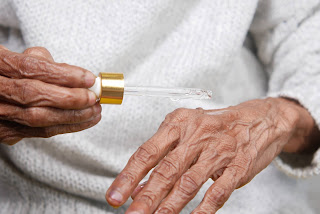What is heart attack..?
A heart attack occurs when the flow of blood to the heart is severely reduced or blocked. The blockage is usually due to a buildup of fat, cholesterol and other substances in the heart (coronary) arteries. The fatty, cholesterol-containing deposits are called plaques. The process of plaque buildup is called atherosclerosis.
A plaque may occasionally burst and generate a clot that restricts blood flow. Part of the heart muscle can be harmed or destroyed by a lack of blood flow.A myocardial infarction is another name for a heart attack.To avoid mortality, a heart attack requires prompt treatment. If you suspect a heart attack, dial 911 or get emergency assistance.
What are the symptoms?
Heart attack symptoms can be various. Mild symptoms are present in some people. Others display serious symptoms. Some individuals show no symptoms.
Typical heart attack signs include:
- chest discomfort that may be felt as pressure, stiffness, soreness, hurting, or discomfort
- spreading to the shoulder, arm, back, neck, jaw, teeth, or even the upper belly
- sweating 🥵🥵
- Fatigue
- unexpected dizziness or lightheadedness
- Nausea
- breathing difficulty
- Atypical symptoms in women can include back, arm, or neck discomfort that is sudden or acute. Sudden cardiac arrest can occasionally be the initial indication of a heart attack.
Heart attacks can happen suddenly. Nonetheless, many people have warning symptoms and signals hours, days, or even weeks in advance. chest pressure or discomfort (angina)
What are the causes of heart attack?
- coronary artery disease
- Coronary artery spasm
- Some infections
- Spontaneous coronary artery dissection
coronary artery disease
Most heart attacks are brought on by coronary artery disease. One or more of the heart's (coronary) arteries are clogged in coronary artery disease. Plaques, which are cholesterol-containing deposits, are typically to blame for this. Plaques can cause artery narrowing, which lowers heart blood flow.A plaque that ruptures may result in a cardiac blood clot.A cardiac (coronary) artery blockage may be wholly or partially responsible for a heart attack. If an electrocardiogram (ECG or EKG) reveals any specific changes (ST elevation) that call for urgent invasive treatment, that electrocardiogram can be used to identify heart attacks. ECG readings may be used by your doctor to describe these kinds of heart attacks.
An ST elevation myocardial infarction is typically indicated by an immediate full blockage of a medium or large heart artery (STEMI).
When you have a partial blockage, your myocardial infarction was probably non-ST elevation (NSTEMI). Nonetheless, a complete blockage can occur in some NSTEMI patients.
Blocked arteries are not the only reason for heart attacks.
Coronary artery spasm
heart muscle spasm. This is a blood artery that is severely constricted but not blocked. Often, the artery has cholesterol plaques or has early vascular hardening from smoking or other risk factors. Prinzmetal's angina, vasospastic angina, or variant angina are other names for coronary artery spasms.
Some infections
specific infections Viral infections like COVID-19 and others can harm the heart muscle.
Spontaneous coronary artery dissection (SCAD).
This life-threatening condition is caused by
Unexpected of the coronary arteries (SCAD).
tearing
What are the risk Factors?
Risk factors for heart attacks include:
- Age. Compared to younger men and women, elderly men and women are more likely to get a heart attack.
- tobacco. This covers both smoking and prolonged passive smoking exposure. Quit smoking if you do.
- elevated blood pressure The arteries leading to the heart might become damaged over time by excessive blood pressure. The risk is much higher when high blood pressure coexists with other diseases like diabetes, high cholesterol, or obesity.
- high triglyceride or cholesterol levels. The most common cause of artery narrowing is a high level of low-density lipoprotein (LDL) cholesterol, also known as "bad" cholesterol. The risk of heart attack is also increased by excessive triglyceride levels in the blood. The risk of a heart attack may decrease if levels
- Obesity. Diabetes, high triglyceride and bad cholesterol levels, and low good cholesterol levels are all associated with obesity.
- Diabetes. When the body can't properly use the hormone insulin or doesn't produce enough of it, blood sugar levels increase. Heart attacks are more likely when blood sugar levels are high.
- metabolic disorder Having an expanded waist (central obesity), high blood pressure, low good cholesterol, high triglycerides, and high blood sugar are all contributing factors in this condition. You are twice as likely to have heart disease if you have metabolic syndrome than if you don't.
What are the common complication?
Heart muscle injury is frequently the cause of heart attack complications. The following are possible side effects of a heart attack:
abnormal or irregular heart beats (arrhythmias). Damage from a heart attack may alter how electrical signals are transmitted through the heart, changing the heartbeat. Some could be fatal and dangerous.
cardiovascular shock This uncommon ailment happens when the heart's ability to pump blood is suddenly and unexpectedly lost.
a heart attack. The heart may become incapable of pumping blood if the cardiac muscle tissue sustains significant injury.
Heart failure can be short-lived or chronic (chronic).







Comments
Post a Comment